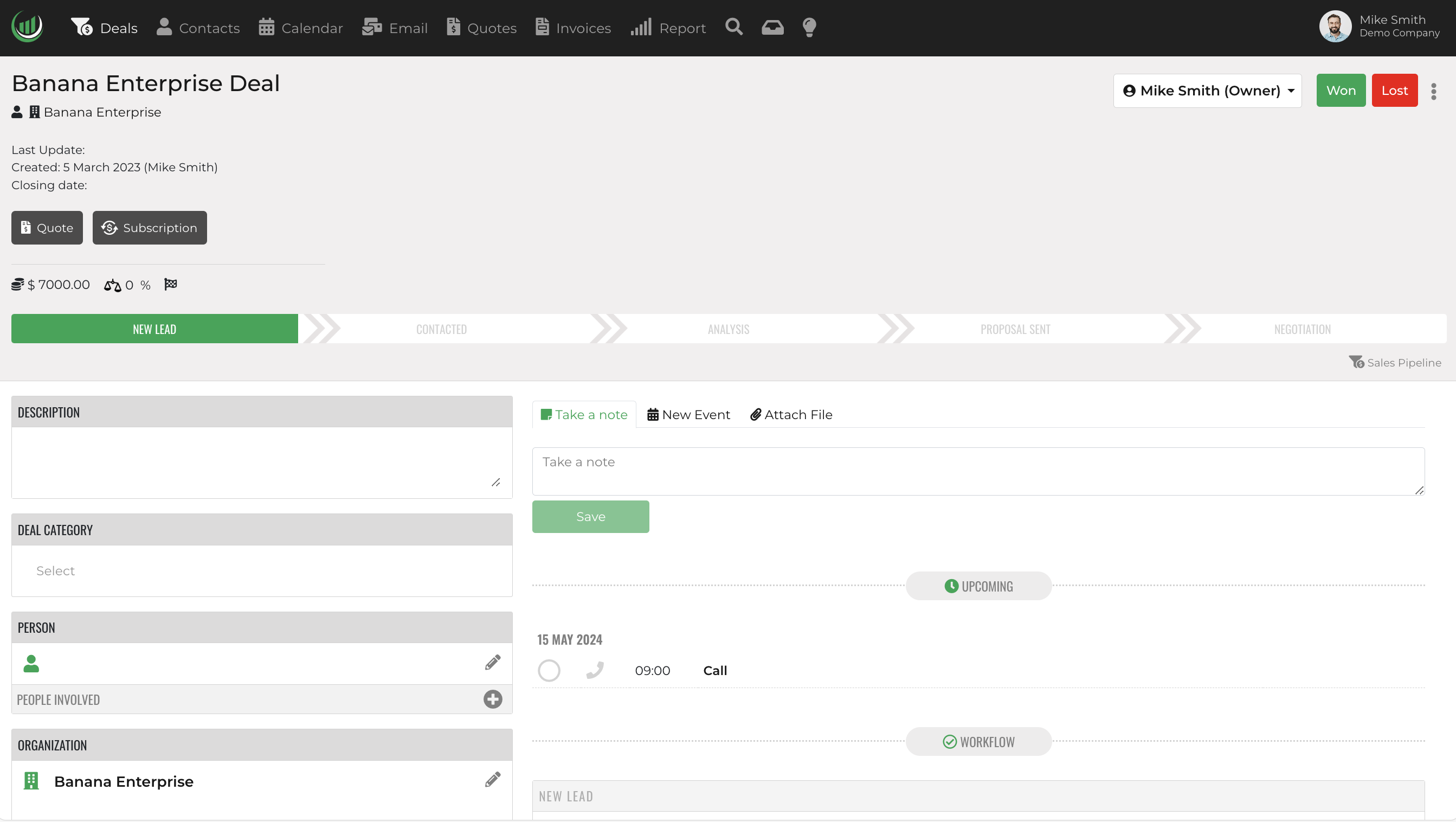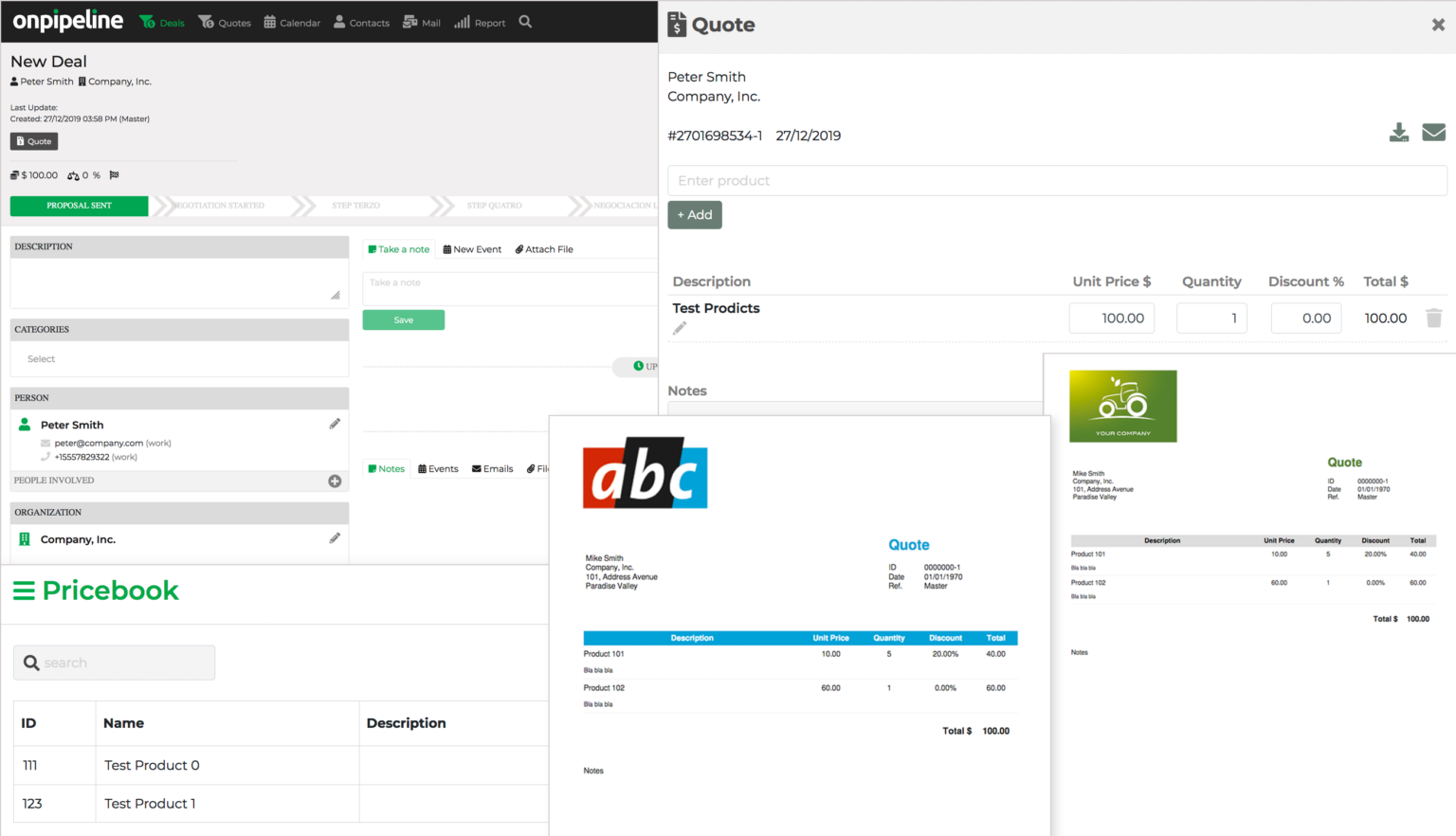Sales Process
Easily track and optimize your workflow from Lead to Close
At the core of our sales workflow is a customizable sales pipeline that you can tailor to fit your specific sales process.
Our platform is highly flexible, suitable for both small businesses and large enterprises with various teams. Each team to follows the sales process defined by a team leader, who provides ongoing oversight and support.

Pipeline Setup
Set up and customize your sales pipeline to reflect your specific sales process.
You can configure multiple pipelines with distinct stages and titles that best match the buying process of your customers. Each pipeline can be tailored for different teams or business units, allowing for more targeted management of sales activities.
Deal Management
Manage deals effectively with a clear overview of each stage in your pipeline.
Our system offers visual management tools that help you track the progress of deals from initiation to closure. Customize your view to display the most relevant information, enhancing decision-making and enabling faster progression through sales stages.
Complex Sales Process
A set of repeatable steps that include a series of sub-tasks.
If your team needs to observe specific tasks, you can optionally set a checklist that needs to be followed within your sales stages.
Onpipeline ensures that all clients are handled to the same corporate standard and will help the Team Leader check if the processes are being followed. Juniors and newcomers will more easily follow the company-defined process.
Mandatory tasks in the sales process means knowing how the contact with the customer will take place in terms of content and quality of communication.

Deals
When a contact shows potential, you open a deal. Each deal is positioned in a stage that reflects its current progress in the sales workflow.
A detailed history for each deal can be maintained by recording notes, uploading files, storing emails, creating quotes, and more, ensuring comprehensive management and organization.
All relevant information is easily accessible and organized within the system, facilitating efficient tracking and management of sales activities.
Quotes
Onpipeline’s quote management feature simplifies the creation and customization of sales quotes, making it easier to meet the specific needs of each client.
The platform allows for quick adjustments to templates and styles, supports multiple currencies for global business, and streamlines the approval process to ensure all quotes are up to standard before being sent.
This tool not only accelerates the sales cycle but also ensures professionalism and consistency in customer interactions.

Try Onpipeline - Free for 30 days!
No contract and no credit card required. Fully operational account. You can try and confirm the same settings by placing an order, or simply let the trial period expire.
Get startedOnpipeline™ is a cloud-based CRM software designed to manage customers and sales from anywhere.
Should you have any questions about features, pricing or anything else, please contact us
© Onpipeline Ltd
